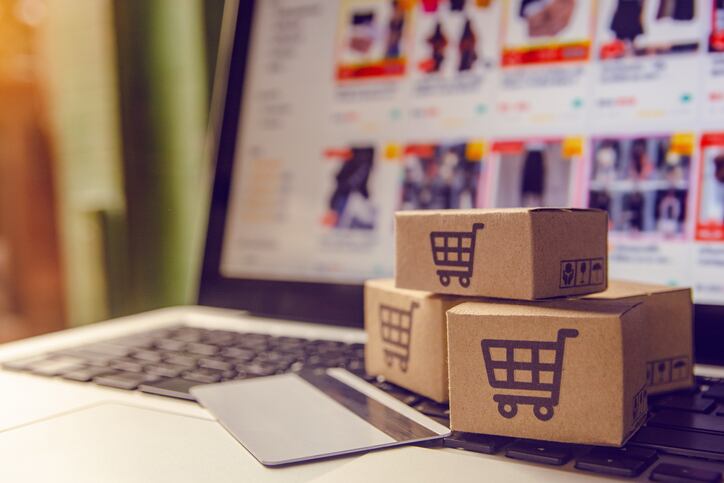Consumer trends are shifting in different directions as a result of the pandemic; as are their shopping habits. This in turn impacts on retail, and companies too must adjust their R&D to suit the new reality.
Coca-Cola, for example, is pulling the plug on smaller projects and shifting its focus to fewer, larger projects that can be scaled up to suit the new reality.
Consumers are orientating to known and trusted brands
One change Coca-Cola expects to see is a renewed focus on known and trusted brands. Consumers are spending less time in shops, less time browsing the shelves, and instead turning to brands and products that are familiar.
“As consumers adjust to stay-at-home lifestyle, they're making fewer shopping trips and filling bigger baskets often based on availability and orientate to known trusted brands,” says Coca-Cola CEO James Quincey.
“Therefore, we are working with our [retail] customers to maximize promotional effectiveness and reconsidering multi-pack promotions and frequency, to ensure the mix of our product and packaging offerings are meeting their needs.”
This leads to a certain amount of simplification across retail: both in terms of responding to consumer trends but also simplifying the supply chain for retailers. Cola has already been on a project to ‘kill the zombies’ in its pipeline – taking a ruthless approach to projects which are not doing as well as expected – and this is only going to be exacerbated under coronavirus.
“For our retail customers, grocery stores for example, we're focused on maximizing system efficiency by ruthlessly prioritizing to deliver on core SKUs and key brands and help customers simplify their supply chains,” said Quincey.
“We're also taking this opportunity to reshape our innovation pipeline to eliminate a longer tail of smaller projects and allocate resources to fewer, larger, more scalable, and more relevant solutions for this environment.”
Ecommerce: the future?
But the biggest shift is likely to be in e-commerce. Coca-Cola says it has experienced an upsurge in e-commerce around the globe: with the growth rate of the channel doubling in many countries.
“Consumers are getting necessities delivered to their door, in many cases with contactless delivery. Revenue growth management plays a key role in our current strategy as we shift toward package sizes that are fit-for-purpose online sales and as we reallocate consumer and trade promotions to digital. For grocery e-delivery companies, we've increased our visibility with a focus on multi-packs so consumers can access our beverage within a click's reach of desire.”
But what is noteworthy is that Coca-Cola does not believe this is a short-term trend: it sees this shaping the way consumers shop in years to come.
“We believe the accelerating expansion of the channel is sustainable and we want to continue to be well positioned for long-term growth. We are investing in digital capabilities to strengthen consumer connections and further piloting several different digital-enabled initiatives using fulfillment methods, whether B2B to home or B2B platforms in many countries to capture online demand for at-home consumption in the future. We're seeing good results in these early days and are looking to scale similar partnerships and more customers.”
Talking to consumers
Large scale marketing efforts are going to change under the new reality, says Quincey.
“We're being mindful about the right level of brand marketing and new product launches given the consumer mindset across the markets. We've developed and determined that in this initial phase, there is limited effectiveness to broad-based brand marketing.
“With this in mind, we've reduced our direct consumer communication. We'll pause sizable marketing campaigns through the early stages of the crisis and reengage when the timing is right. These plans will vary from market-to-market with our earliest reengagement focusing on the recovery in China. At the same time, we are leveraging our associates to address longer term opportunities recognizing that near-term realities will subside.”
The future of other marketing campaigns – notably for Coca-Cola its sponsorship of the now postponed Tokyo Olympics – are also being worked out with its partners.
“I think it’s pretty clear that we’re going to see a relatively limited amount of large sporting events with audiences in the next couple of quarters. We have to adapt to that.
“We have been very observative in increasing the degree of flexibility and reprioritization… because we just don’t know which channels or events are going to open up when.
"The good news is most of the marketing spend is variable and we retain the opportunity to change our plans as we go through the year.”
Long term prospects for away-from-home?
The biggest impact from the pandemic on Coca-Cola so far has been a sharp decline in the away-from-home sector, which has seen a 25% drop since the pandemic took hold. This includes eating and drinking channels as well as on-the-go orientated channels like convenience retail.
In the at-home channels, Coca-Cola saw some early pantry loading, particularly in certain developed markets at the beginning of many of the lockdown phases. However, levels are now normalizing. It’s a different story, however, in other markets: in India, the severity of distancing measures means there has been a significant reduction in shopping trips.
“At this stage, it's a little too early to determine exactly what level at-home trends will stabilize at.”
The away-from-home sector has been severely hit in the short term: and longer-term prospects are still unknown. Consumers are ultimately ‘social animals’, says Quincey – but it will take time for things to return to normal for the on-trade. Again, this is another factor that plays into e-commerce.
“Once we get past the lockdown, I think we'll see an environment through these graduated reopenings, all societies still with the specter of the virus over us with a reality of an impacted economy. And I think what we're likely to see is a step change in some already ongoing trends like a step up in e-commerce."
And ultimately the hit to the economy will lead to a new focus on affordability: and while it’s difficult to predict to what extent, this is again a factor that will drive sales towards e-commerce.
How is Coca-Cola dealing with the coronavirus pandemic? Read more here.




